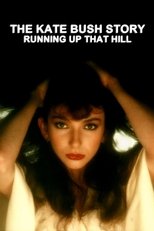Nigel Kennedy
¿Quién es Nigel Kennedy?
Kennedy's grandfather was Lauri Kennedy, principal cellist with the BBC Symphony Orchestra, and his grandmother was Dorothy Kennedy, a pianist. Lauri and Dorothy Kennedy were Australian, while their son, the cellist John Kennedy, was born in England. After graduating from the Royal Academy of Music in London, at age 22, John joined the Royal Liverpool Philharmonic Orchestra, later becoming the principal cellist of Sir Thomas Beecham's Royal Philharmonic Orchestra. While in England, John developed a relationship with an English pianist, Scylla Stoner, with whom he eventually toured in 1952 as part of the Llewellyn-Kennedy Piano Trio (with the violinist Ernest Llewellyn; Stoner was billed as "Scylla Kennedy" after she and John married). But they ultimately divorced, and John returned to Australia.
Kennedy was born in Brighton. A boy prodigy, as a 10-year-old he picked out Fats Waller tunes on the piano after hearing his stepfather's jazz records. At the age of 7, he became a pupil at the Yehudi Menuhin School of Music. He later studied at the Juilliard School in New York City with Dorothy DeLay. While there he helped to pay for his studies by busking with fellow student and cellist Thomas Demenga.
Kennedy has about 30 close relatives in Australia, whom he visits whenever he tours there.
At the age of 16, Kennedy was invited by jazz violinist Stéphane Grappelli to appear with him at New York's Carnegie Hall. He made his recording debut in 1984 with Elgar's Violin Concerto. His subsequent recording of Vivaldi's The Four Seasons with the English Chamber Orchestra in 1989 sold over two million copies and earned a place as one of the best-selling of all classical recordings. The album remained at the top of the UK classical charts for over a year, with total sales of over three million units.
In 1992, Kennedy announced the end of his career in classical music. Around this time, he recorded the album Music in Colours with Stephen Duffy. He returned to the international concert platform in the mid-1990s. In 1997, he received an award for Outstanding Contribution to British Music at the BRIT Awards, and in 2001 received the 'Male Artist of the Year' award.
In other music genres, Kennedy recorded a cover of Jimi Hendrix's "Fire" for the 1993 album Stone Free: A Tribute to Jimi Hendrix. The same year, he made an appearance on Robert Plant's solo album Fate of Nations on the track "Calling to you". In 1999, Sony Classical released The Kennedy Experience, which featured improvisational recordings based on Hendrix compositions. Kennedy's autobiography, Always Playing, was published in 1991. ...
Source: Article "Nigel Kennedy" from Wikipedia in English, licensed under CC-BY-SA 3.0.
Trabajos destacados
Géneros más habituales en las películas de Nigel Kennedy
Géneros más habituales en las series de Nigel Kennedy
Compañeros de trabajo recientes de Nigel Kennedy
Las imágenes y retratos de actores y actrices mostrados en este sitio web son obtenidos de la base de datos pública de The Movie Database (TMDb), utilizada bajo los términos y condiciones de dicha plataforma. En caso de que alguna imagen o fotografía sea incorrecta, ofensiva, o pueda infringir derechos de imagen o copyright, puede ser editada o eliminada directamente en TMDb. Esto provocará su eliminación automática en este sitio web. Adicionalmente, si usted desea solicitar la eliminación de una imagen directamente en nuestro sitio web, puede utilizar el formulario de contacto ubicado al pie de la página. Atenderemos su solicitud de manera expedita y tomaremos las medidas necesarias para garantizar el cumplimiento de los derechos aplicables.
The images and portraits of actors and actresses displayed on this website are sourced from the public database The Movie Database (TMDb), used in accordance with its terms and conditions. If any image or photograph is incorrect, offensive, or may infringe image rights or copyright, it can be edited or removed directly on TMDb. This will automatically result in its removal from this website. Additionally, if you wish to request the removal of an image directly from our website, you may use the contact form located at the bottom of the page. We will promptly address your request and take the necessary measures to ensure compliance with applicable rights.
















